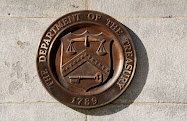After the killing of the prime minister of Yemen's Houthi-run government and several
other ministers, Houthis have expressed their intentions to kill
Israeli Prime Minister Benjamin Netanyahu. Can this be taken as a real threat
to the life of Netanyahu?
In all the probability, the Houthis do not have the
capability to directly target Netanyahu inside Israel. Their missile and drone
reach has extended toward Israel during the Gaza war (some were intercepted by Israel,
US, and allied forces), but striking the Israeli Prime Minister personally is
far beyond their operational reach.
However, they can increase pressure on Israel by: 1)
targeting Israeli linked ships and shipping lanes in the Red Sea, 2) launching
long-range missiles or drones toward Israeli territory, and 3) deepening
Israel’s regional isolation by linking the Gaza conflict with Yemen.
In reality, Netanyahu faces greater personal risk from inside
Israel (domestic unrest, Palestinian militant groups) or from major regional
actors (Hezbollah or Iran) rather than from the Houthis themselves.
While, it may be concluded that the Houthis are not a direct
threat to Netanyahu, but they contribute to the overall regional security
pressure on Israel that indirectly undermines his political standing and
safety.
External threats to Netanyahu
Let us examine the structured hierarchy of external threats
to Netanyahu’s life and political survival, ranked from most serious to least:
Hezbollah – Highest Direct Threat
The group has the capability, being the largest, most
experienced armed group on Israel’s borders. It has tens of thousands of
rockets, advanced drones, precision missiles. Its biggest advantage is proximity,
right on Israel’s northern border. It may be said that the threat level to
Netanyahu is very high – Hezbollah could, in theory, target Israeli leadership.
Iran – Indirect Threat
Iran enjoys capability, being the regional power with
ballistic missiles, drones, cyber operations. While Iran may not directly
target Netanyahu, it can facilitate proxies (Hezbollah, militias in Iraq/ Syria,
and Houthis).
Palestinian Militants
Hamas, PIJ, and West Bank groups have the capability, having
short-to-medium range rockets, cross-border raids, suicide missions. On top of
all they enjoy proximity. Most of the resistance group consider Netanyahu
directly responsible for Gaza destruction. Analysts believe it is difficult for
them to reach him personally due to Israel’s heavy security.
Houthis (Yemen)
Houthis enjoy certain advantages like long-range drones and
ballistic missiles, some have reached Israel’s southern airspace, others
intercepted. Houthis position themselves as part of “Axis of Resistance” with
Iran, Hezbollah, and Hamas. Target Israel-linked shipping and occasionally
Israel itself. Their threat level is low, as they cannot realistically strike
Netanyahu personally, but can harass Israel economically and militarily.
Other Regional Militias
Groups based in Iraq and Syria enjoy certain capabilities, rockets
and drones, but usually confined to US or Israeli targets in Syria/ Iraq.
Therefore, the real threat level to Netanyahu’s life may be low to moderate, but
nuisance attacks are possible, though unlikely to reach Israeli leadership.



















